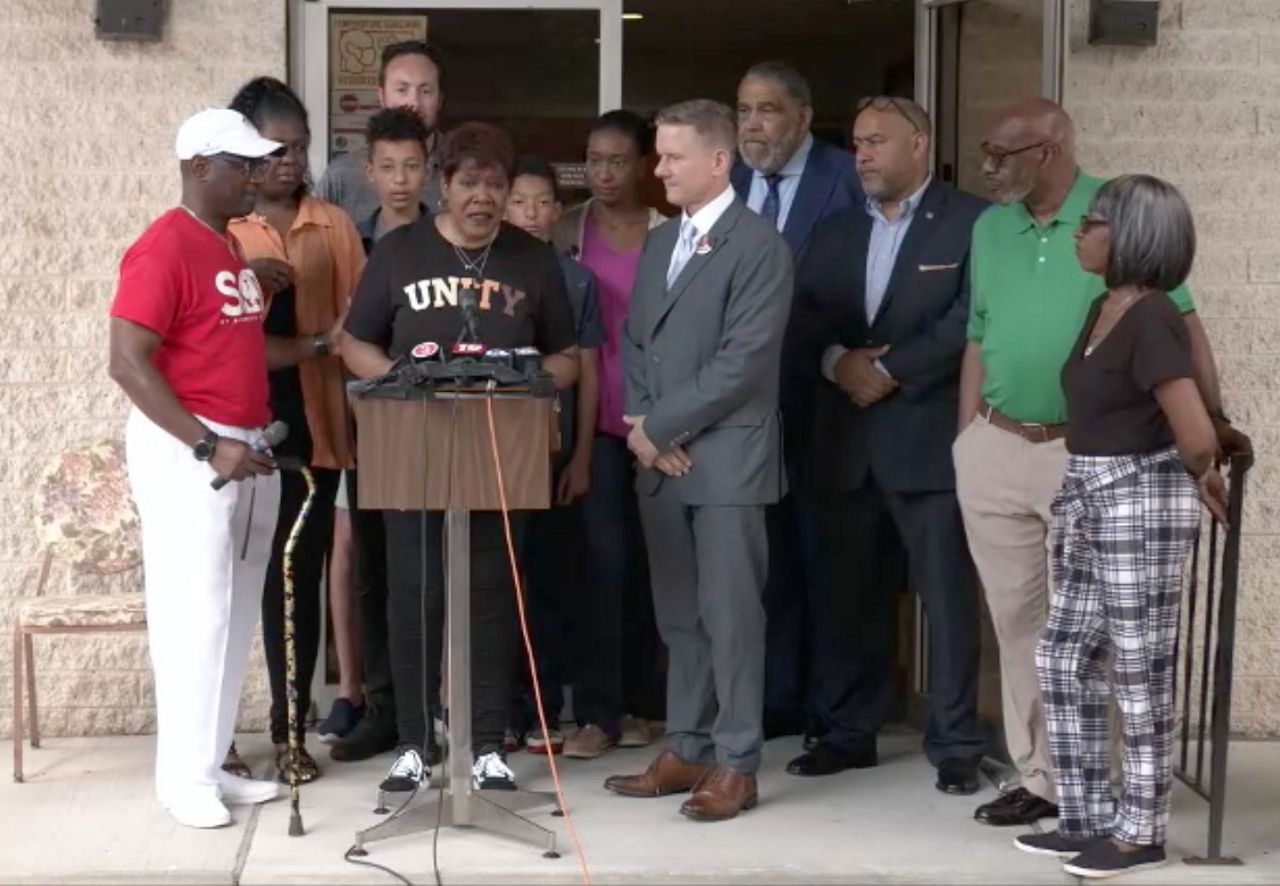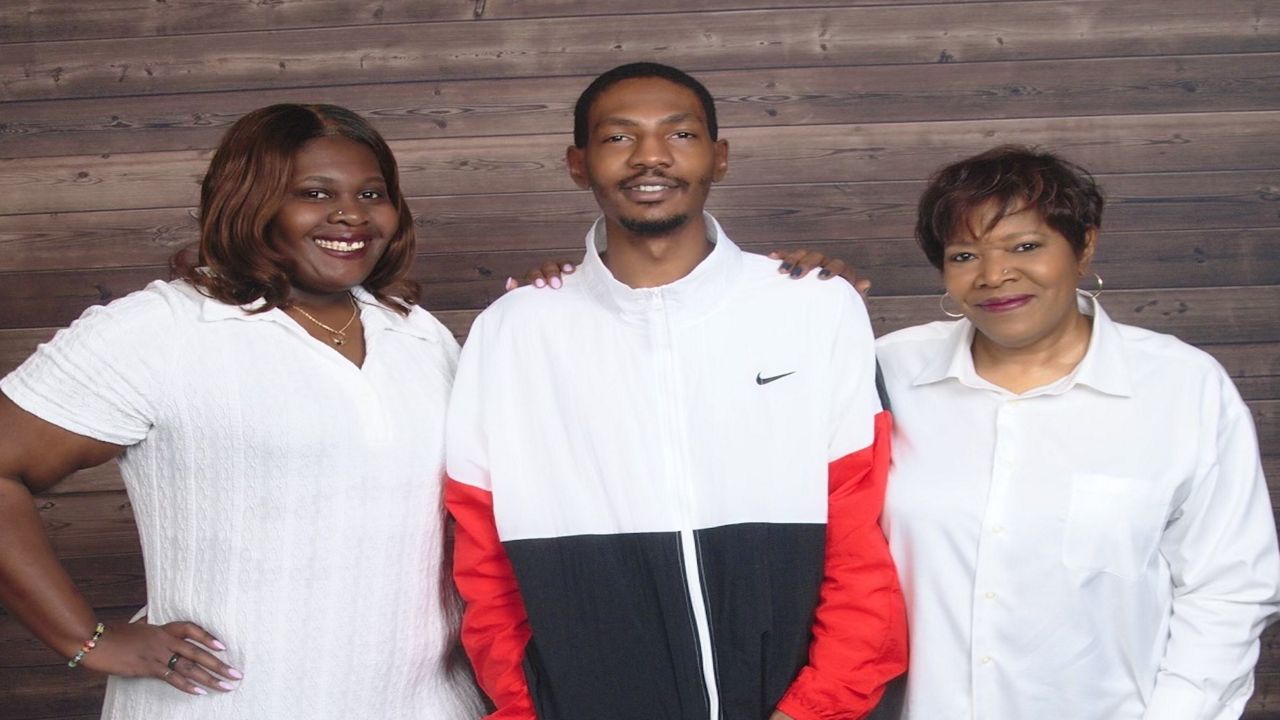AKRON, Ohio — The Akron community’s focus should not be on whether 25-year-old Jayland Walker committed “suicide by cop” last June in Akron, said Walker family attorney Bobby DiCello.
The community should instead focus on whether the eight Akron police officers who fired more than 90 shots at Walker, who was unarmed, were upholding the U.S. Constitution, which is intended to preserve “the inalienable right to life, liberty and the pursuit of happiness,” DiCello said.
“The Constitution is the whole reason why the law has been written in this area and argued in courts for decades,” he said. “Meaning, when a person dies, there's never an inquiry into whether they want it or not. And the reason is, that police officers are not constitutionally allowed to kill us, even if we want to die. That creates a society of anarchy.”
The Walker family will file a civil lawsuit before what would be Walker’s 27th birthday in July, DiCello said. Meanwhile, Akron Police Chief Steve Mylett said Monday the city will begin an internal investigation into the shooting.
Walker was fatally shot just after midnight on Monday, June 27. He had evaded police who tried to stop him for an equipment violation, leading officers on a vehicle and foot chase, firing at police in pursuit, according to the Attorney General Bureau of Criminal Investigation.
Attorney General Dave Yost announced on Monday that a special grand jury that was convened last week had declined to indict any of the officers.
Following the announcement, the AG released hundreds of files — interviews, reports, photos, videos and audio clips — BCI investigators had gathered over the 10-month investigation to present to the grand jury.
Among the evidence, some witness statements and tips to law enforcement recount Walker’s distress over the death of his fiancé, Jaymeisha Beasley, in an auto accident a month before the shooting and indicate he was having thoughts of suicide.
Beasley was ejected from a vehicle on I-71 on May 28 and run over by a hit-and-run driver who has not been identified, police said.
Among them are accounts by Euclid police, who interviewed Dupri Whatley, a Summit County Sheriff Jailer and Walker’s close friend, after the shooting. During the pre-employment interview, Whatley said Walker had thoughts of suicide and had asked him tactical questions about how to be shot by police, the Euclid officers said.
On July 2, Euclid Police Captain Mike Janson paraphrased for BCI investigators some of that conversation with Whatley.
“I’m telling you this was a suicide by cop, and I’m totally on Akron P.D.’s side even though it’s my best friend,” Janson told BCI Whatley had said. The Euclid Police Command staff, four captains, the chief and a lieutenant were all present and corroborated the interview, BCI records show.
Later the same day, when BCI Special Agent Cory Momchilov spoke with Whatley by phone, Whatley denied making the statements. Whatley acknowledged to the agent that Walker had not been himself after Beasley’s death but that actions Walker took the night he was killed were completely out of character.
Walker also had queried Google about drinking bleach and buying one-way tickets to places like Africa and Egypt, investigators found.
Much of Walker’s behavior, no matter how unusual it seems, can be attributed to Beasley’s death, DiCello said.

Walker and Beasley had been together for several years and were planning to buy the house they rented and marry. Walker listed her in his phone as “wife,” investigators found when they received his phone records.
“His girlfriend died and within days or so of that he was looking at all kinds of sad things and things that are born of extreme anguish,” DiCello said. “That's what human beings do.”
What’s more, Walker didn’t indicate to his mother or sister, Jada Walker, he had suicidal plans, DiCello said. He had just had dinner with his mother and acted normally.
“And he didn't give her a long-winded wistful look goodbye. He didn't say, ‘Mama, if anything bad happens know, I love you,’ and dramatically drive off,” DiCello said. “There was nothing and they were close.”
Investigators also received tips, some anonymous, about Walker’s depressed state.
On July 5, BCI followed up on a recorded tip Akron police received, in which the caller stated Walker had told people who worked with Beasley at an Akron Walmart that he couldn’t live without her and would do anything to be with her again.
The caller said because the Walker family’s religious beliefs held that death by suicide would keep someone out of heaven, “suicide by cop should be looked into since he ran from two departments, and put his ring by the gun in the car,” investigators reported.
When they followed up with the people mentioned on the call, they denied knowing the Walkers.
On July 18, investigators followed up on another tip from a man saying his wife worked with Walker’s mother, Pamela Walker, who told his wife she had to “hide the knives” in the kitchen so her son didn’t harm himself after Beasley died.
The tipster’s wife later told BCI she didn’t know Pamela Walker and didn’t have a conversation with her.
DiCello calls out other aspects of the incident he says don’t square with the AG’s narrative about Walker’s actions.
Police in pursuit of Walker that night called for a “Signal 21,” police said, which is a serious call for backup, as it indicates officers have been fired upon.
According to DiCello, there’s no way Walker could have fired the weapon found on his driver seat because his window was rolled up, and he was going at high speed entering Route 8.
“I want you to shoot a police officer who's behind you. How do you do it?” he said. “Here's how you do it. You do it like in the movies — you blast out the back windshield, and then you start shooting. But you can’t do one hand on the steering wheel and the other hand over your shoulder, like behind your head, popping shots. You can’t do that.”
DiCello said he has yet to see a frame from one of the highway traffic cameras that captured the pursuit that shows Walker’s hand out the window or his door open to fire behind him.
Further, the first two officers who encountered Walker tried to shoot him with tasers, not guns, he said.
“You don't bring tasers to a gunfight,“ he said.
In their testimonies, the officers said they fired at Walker when he exited his car wearing a ski mask because he reached for his waistband and brought up his outstretched arm as he turned to face them, which appeared threatening. Most of the officers said they believed he was armed.
The notion of Walker dying by suicide doesn’t make sense for other reasons, DiCello said. One is that he left his weapon, which he had unloaded, in his car.
“If you want to die, just bring [the gun] with you and turn it at them,” he said. “You just keep the gun loaded, and walk out of the car with it. Or, for that matter, keep trying to shoot these cops as you drive in this magical way that you figured out how to do.”
Walker was within his rights to possess a gun and to fire it, DiCello said. Since the gun was unloaded when it was recovered, he could have been shooting to rid the weapon of the bullet in the chamber.
Police are supposed to de-escalate situations, and in this case there was time to do that, DiCello said. Four minutes passed between police seeing a muzzle flash and Walker stopping in the parking lot where the incident occurred.
“Even if the gun is discharged in the presence of an officer who's in a car driving behind you and you never fire the gun again at all and four minutes pass, what is your basis to believe he's going to do it again?’ he said.
DiCello compared the Walker scenario with the Highland Park shooter, who murdered six people in Illinois last Fourth of July during a parade, with more than 100 officers responding. The shooter drove for hours before he was apprehended.
Yet police “took him to the ground and gently laid him down,” he said.
The AG handled this case as though Walker was the defendant, DiCello said, even though the AG is supposed to represent the prosecution.
“Could he have just been sad that his girlfriend died and can we grant him that?” DiCello said. “Do we have to turn him into a monster who is plotting to kill cops?”



